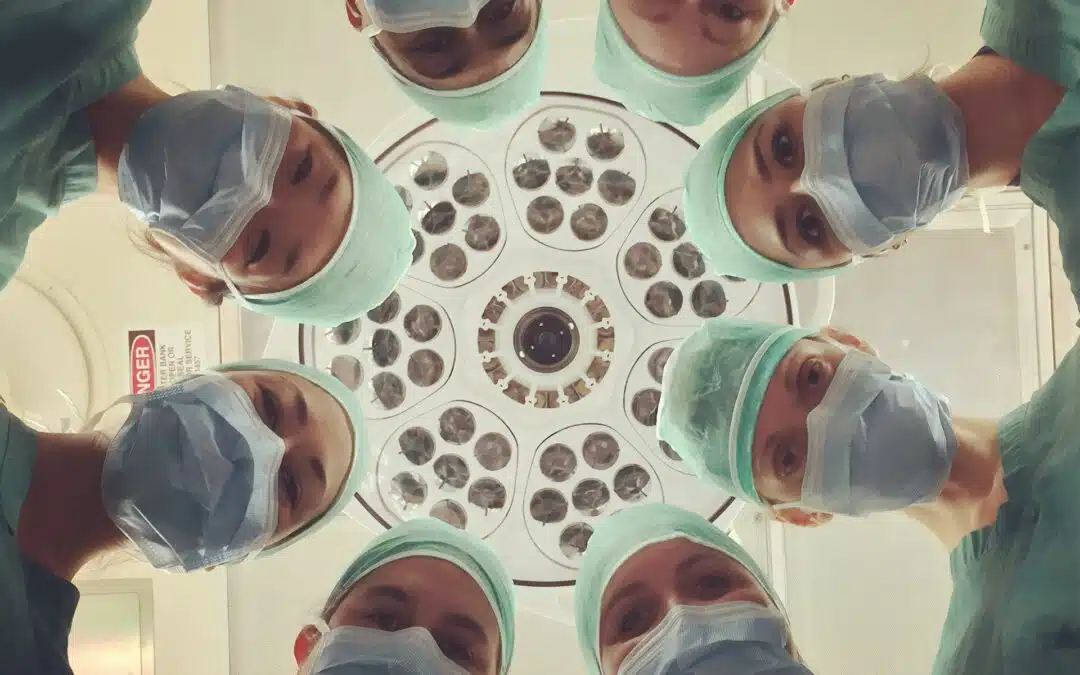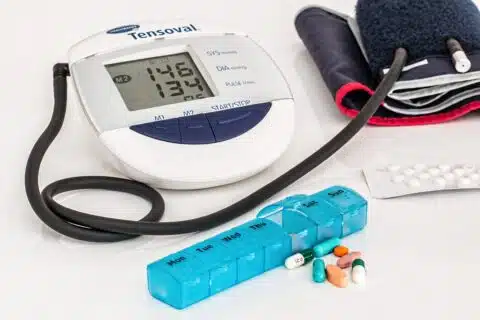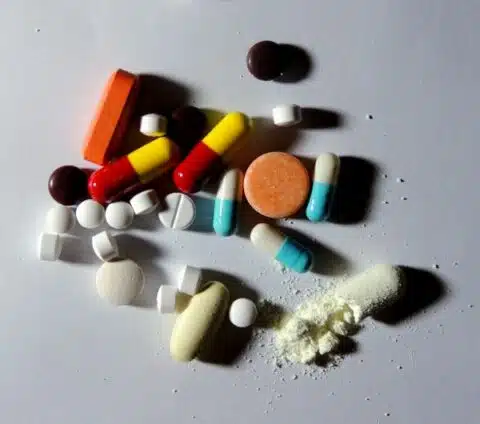The French healthcare system consistently rates as one of the best in the world. This month we are looking at how it works and providing you tips to help you get the best possible care during your time in France.
In that aim, here is a handy guide to medical terms in French. Chances are that sooner or later, you or someone close to you will need to consult a healthcare professional. Whether it be for a check-up, a routine vaccine or in the case of an emergency, it’s always best to be prepared!
So let’s start with a few helpful phrases in case of an emergency!
Emergency vocabulary
Au secours ! — Help!
J’ai eu un accident — I have had an accident
J’ai besoin d’un médecin — I need a doctor
J’ai mal ! — I’m in pain!
Je ne vais pas bien — I do not feel not well
Où est-ce qu’on peut trouver un cabinet médical ? — Where can I find a doctor’s office / surgery?
General medical terms
Here are some more general medical terms which will also come in handy.
Ambulance (f) — ambulance
Blessure (f) — injury
Bleu (m) — bruise
Cabinet médical (m) — doctor’s office
Carnet de santé (m) — medical record
Diagnostic (m) — diagnosis
Médecin (m) — doctor
Douleur (f) — pain
Echographie (f) — ultrasound
Effet secondaire (nm) — side effect
Enflé (adj) — swollen
Fièvre (f) — fever
Glycémie (f) — blood sugar
Gonflement (m) — swelling
Hôpital (m) — hospital
Infirmier (m), Infirmière (f) — nurse
Inflammation (f) — inflammation
Maladie (f) — illness
Mutuelle (f) — top-up medical insurance
Ordonnance (f) — prescription
Pharmacie (f) — pharmacy or chemist (UK)
Pouls (m) — pulse
Premiers secours (m) — first aid medical help
Pression artérielle or tension (f) — blood pressure
Radiographie (f) — x-ray
Salive (f) — saliva
Sang (m) — blood
Santé (f) — health
Seringue (f) — syringe
Symptôme (m) — symptom
Urgence (f) — emergency
Urgences (fpl) — emergency room (USA) A & E (UK)
Vomi (m) — vomit
Body parts terms
Next, let’s have a look at some vocabulary for body parts in French, to help you explain where you are feeling pain.
Amygdales (fpl) — tonsils
Bouche (f) — mouth
Bras (m) — arm
Cheville (f) — ankle
Coeur (m) — heart
Cou (m) — neck
Coude (m) — elbow
Dents (fpl) — teeth
Doigt (m) — finger
Dos (f) — back
Épaule (f) — shoulder
Estomac (m) — stomach
Foie (m) — liver
Front (m) — forehead
Gencives (fpl) — gums
Genou (m) — knee
Gorge (f) — throat
Jambe (f) — leg
Joue (f) — cheek
Narine (f) — nostril
Nez (m) — nose
Oeil (m) / Yeux (mpl) — eye / eyes
Oreille (f) — ear
Orteil (m) — toe
Paupière (f) — eyelid
Poitrine (f) — chest
Pouce (m) — thumb
Poumons (mpl) — lungs
Rein (m) — kidney
Tête (f) — head
Végétations (fpl) — adenoids
Ventre (m) — abdomen
In case of an appointment
To help you during a medical appointment, here are some questions and phrases that you might hear from a healthcare professional:
Qu’est-ce qui ne va pas ? — What’s wrong?
Qui dois-je contacter en cas d’urgence ? — Who is your emergency contact?
Montrez-moi où vous avez mal — Show me where it hurts
C’est la première fois que ceci vous est arrivé ? — Is it the first time this has happened to you?
Prenez un comprimé une fois par jour avant de manger — Take a pill once a day before eating
How to describe common conditions?
Next, here are some useful phrases for you to use at the doctor’s office or at a pharmacy, to describe common conditions.
J’ai mal à … — My … hurts
J’ai … — I have …
J’ai des allergies — I have allergies
J’ai de l’asthme — I have asthma
J’ai mal au dos — I have a backache
J’ai un rhume — I have a cold
J’ai de la toux — I have a cough
J’ai des crampes — I have cramps
J’ai mal aux oreilles — I have earache
J’ai le nez bouché — I have a stuffy / blocked nose
J’ai de la fièvre — I have a fever / a high temperature
Other physical ailments
And here, you can find some vocabulary to translate other physical ailments.
Accident vasculaire cérébral (AVC) (m) — a stroke
Amygdalite (f) — tonsillitis
Angine (f) — sore throat, strep throat
Aphte (m) — canker sore / mouth ulcer
Appendicite (f) — appendicitis
Arthrite (f) — arthritis
Asthme (m) — asthma
Bronchite (f) — bronchitis
Bouton de fièvre (m) — cold sore
Commotion cérébrale (f) — concussion
Crise cardiaque (f), infarctus (m) — heart attack
Coup de soleil (m) — sunburn
Diabète sucré (m) — diabetes mellitus
Entorse (f) — sprain
Fracture (f) — fracture
Gastrite (f) — gastritis
Grippe (f) — flu
Hernie (f) — hernia
Infection urinaire ou cystite (f) — urinary tract infection
Migraine (f) — migraine
Piqûre d’abeille (f) — bee sting
Pneumonie (f) — pneumonia
Rougeurs (f plural) — rash
Ordering your prescribed medecines
Finally, check out this vocabulary for common treatments that your doctor may prescribe for you.
Anti-douleur (m) — painkiller
Béquilles (fpl) — crutches
Comprimé (m) — tablet
Fauteuil roulant (m) — wheelchair
Médicament (m) — medication
Pansement (m) — bandage
Plâtre (m) — cast
Pommade (f) — ointment
Repos (m) — rest
Vaccin (m) — shot, vaccine
We hope that you find this handy vocabulary guide helpful! Do you have any other medical vocabulary to add to this list? Let us know in the comments section below! Be sure to come back soon and check out our next blog articles about how to navigate the fabulous French healthcare system. Until then, take care! – Prenez soin de vous!
Born and raised in the UK, I’ve always had a passion for languages and for travelling. And ever since coming to France on family holidays as a child, I dreamed of living in France. So i chose to study languages (French, German then Spanish), and during my degree, I came to nîmes for a year and fell in love with the region. What is there not to love?! The beautiful roman monuments, the warm sunny weather, the beautiful beaches in nearby camargue and laid-back café culture, not to mention of course the fantastic food and wine, to name but a few things. After graduating in 2000, I moved straight back to nîmes and have been living here ever since! I married a French man and we have two perfectly bilingual children. During this time I have had lots of experience navigating French administration and its challenges! Among other things, obtaining my carte de séjour, carte vitale and changing my driving licence for a French one. I have also had personal experience of the French property market as I’ve bought, sold and renovated houses, and I currently rent flats out on short-term and long-term lets. I have experienced the French education system both as a parent and as a teacher. I’ve been teaching English to adults, students and children for over seven years. Previously, I also worked as a bilingual PA and bilingual project manager, as well as in translation and proofreading, purchasing and import, honing many skills along the way. I am delighted to share all my experience and knowledge of life in France and help out other English speakers arriving in France to live out the French dream!
All articles by: Liz Lefranc






